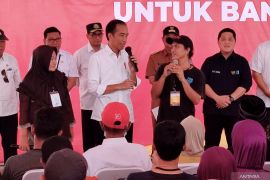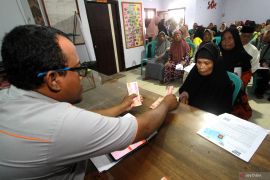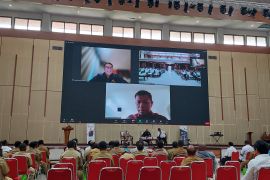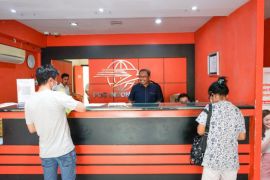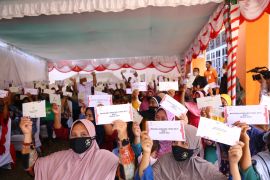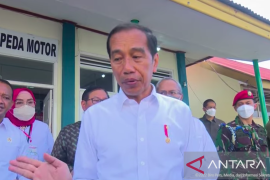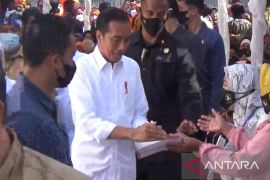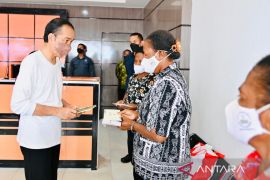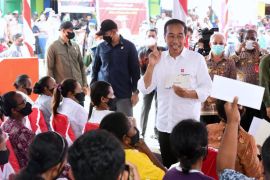"The assistance is like money politics. It brings small benefit but big disadvantage," Deputy Chairman of the Regional Representatives Council (DPD) La Ode Ida said.
He said that the direct cash assistance seemed to be provided to `bribe` the poor so that they would not be angry with the increase in the price of fuel oils, it was not for improving their welfare.
Chief Economic Minister Hatta Rajasa said on Friday that the government was planning to provide assistance for the poor through a temporary direct cash assistance (BLSM) scheme worth Rp25 trillion. It will be provided in the face of the government`s plan to increase fuel oil prices and power rates.
"The BLSM funds amount to about Rp25 trillion. They will be distributed to the poor when the fuel oil prices are raised. If the oil prices are raised in April, the assistance should be distributed in April as well. It should not be delayed," said Hatta here on Friday.
He said that the assistance would be provided to about 30 percent of Indonesia`s population or about 18.5 million families who would be affected by the price hikes. "About 30 percent of the people or 18.5 million families will receive the assistance," Hatta said.
The chief economic minister said that the assistance would be provided in different forms, among others in the form of direct assistance to each poor family. The amount of money they will receive would be more than Rp100 thousand as was the case in previous years.
"Some of the the BLSM will also be channeled to other recipients in need like those in the transportation sector who also are to be affected by the price hikes," said Hatta.
Earlier, Social Affairs Minister Salim Segaf Al Jufri said the government will immediately discuss compensation for the poor who will be affected by the planned fuel price hike with the House of Representatives (DPR).
"It is not yet final and still has yet to be discussed with the DPR. But it is certain that the poor`s income must be raised. It would be a pity if it is not," he said. The government still has time to discuss the matter before the revised budget is passed and subsidized fuel oil prices are adjusted.
"We will decide about it later. We still have time for it," he said. He said the government has had an experience in providing compensations for the poor such as in the form of cash handout (BLT) when the fuel price was raised in 2005 and 2008.
However, government critics said the assistance would not improve the prosperity of the poor. "The Rp100 thousand that they will receive each month for eight months will finish in eight months as well and will not solve the poverty problem. Instead, it will instill a beggar`s mentality in the people," La Ode said.
He said that the government should think of how to empower the poor. "The government should think of how to empower them so that they will be able to improve their own life continuously," he said.
The government should create programs which are able to create employment opportunities, raise wages and improve their prosperity. "It should work out programs which enable the people to improve their own welfare," the DPD deputy chairman said.
The same criticism was also raised by Din Syamsuddin, general chairman of the country`s second largest Muslim organization, Muhammdiyah. He said that the government`s plan to provide direct assistance in line with its plan to raise fuel oil prices was in nature politically motivated.
"As we all know, such a step is a political approach. It is very clear that our government is developing image-building politics," Din said after attending a discussion on national oil policy here on Thursday.
The policy is a strategy for the government to avert the public opinion which begin to understand the government`s bad performance.
According to Muhammad Arwani Thomafi of the Executive Board of the United Development Party (PPP), the direct cash assistance is a bad education for the poor. "The direct assistance provided by the government in the last several years was not effective. It is bad for the people`s mentality as it encourages them to become beggars," he said.
He said that the assistance was only temporary while the impact of fuel oil prices such as rising commodity prices would become permanent.
Arwani said the government should not provide compensation but programs that could support the improvement of the poor people`s welfare in the long run. "The government should provide a fishing rod not a fish so that they could be creative," he said.
Legislator Daryanto Mardiyanto therefore hoped that the government`s compensation would be provided not as a means of building its image. "This is image building as if the government was doing its best for the people," said Daryatmo.
In fact, he said, the government is forcing the people to contribute more to the state through increasing fuel oil prices. "If the government is really intending to protect the people, it should maintain the subsidy and low price of fuel oil," he added. (*)
Reporter: Andi Abdussalam
Editor: Kunto Wibisono
Copyright © ANTARA 2012
